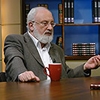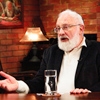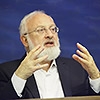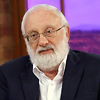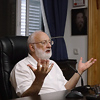 Question: Well-known psychologist Mikhail Labkovsky shares that shame is a discreet emotion, an emotion that a person tries to hide, and therefore it is toxic and harmful. He gives the analogy of shame as a potted plant that given the constant feeding and fertilizing and resources a person gives it (the shame), it grows into a huge tree. He advises that you need to work with shame or it will consume your entire personality.
Question: Well-known psychologist Mikhail Labkovsky shares that shame is a discreet emotion, an emotion that a person tries to hide, and therefore it is toxic and harmful. He gives the analogy of shame as a potted plant that given the constant feeding and fertilizing and resources a person gives it (the shame), it grows into a huge tree. He advises that you need to work with shame or it will consume your entire personality.
How can a person work with it?
Answer: Only the relationship between a person as a flower with other flowers, with other people, in mutual restriction, in mutual assistance, etc. will help everyone organically develop and collect a good flower bed.
Question: Where is the place for shame here?
Answer: It is inside between them. There is shame, pride, joy, sadness, and everything else.
Question: Should I relate to it somehow? What should I do with shame?
Answer: Manage it! If there were no shame, who would we be? We would be animals.
Shame is what distinguishes man from an animal. This is the difference between these two degrees. If I am not ashamed, then I am like an animal. It does not matter why and how.
Shame is from the fact that I am not like him, not so smart, etc. Shame is what keeps me from losing at least the degree I am at.
Question: Do I need to nourish it?
Answer: It is absolutely necessary. It is imperative to make sure that shame corresponds to the degree I want to rise to each time or it will not hold me.
Question: So, it turns out that it is shame that pushes me to this degree?
Answer: Yes, it is a restraining force and a pushing force. It restrains from falling and pushes to rise.
Question: Why do psychologists usually say don’t nourish it, crush it?
Answer: I don’t know. For them, there are qualities in nature that they consider negative. And for me, there are no negative qualities; they are all positive, and everything must be used correctly.
Question: So the correct sentence here would be, “We need to properly use this shame that exists”?
Answer: Of course!
Question: And to know that it is a positive quality?
Answer: Yes. I asked about it and talked about it a lot with my teacher Rabash. And he said that shame is a special creation of the Creator. A special invention of the Creator to make people ashamed. This is like an indicator for them that they are moving away from their path.
You imagine you have a compass guiding you to a goal that you cannot see, which is far away, and you are in the dark, in bad weather. How do you advance? Shame keeps you in place, you can always direct yourself to the Creator, and shame will help you in this. Neither to the right nor to the left, it will hold you.
Look at how a person even in our ordinary world can be so egoistic, pragmatic, rude, and so on. They are still trying to keep themselves relative to each other in some decent condition. It is a shame! Moreover, it is at every degree, at every moment. That is what keeps us going.
Can you imagine how different we are from animals! They have this state disabled altogether. They only act according to what makes them feel better at every moment. And we have another system enabled: how I behave and how I show myself to the outside.
And that is what sets us apart. This is what we call a human in us. Shame is what molds a person from an animal.
Comment: Nice, you have created such a monument to shame.
My Response: Therefore, we must use this in schools and in education to tell, explain, show, and psychologically develop a sense of shame in humanity.
There is none of this. On the contrary, the more shameless I am, I can brag about it, flaunt it, and it will be considered that I am special.
This is the difference between an intelligent upbringing, the correct approach to life, to the world, to people, and such a purely open, egoistic one.
[303278]
From KabTV’s “News with Dr. Michael Laitman” 5/30/22
Related Material:
Shame Is A Beneficial Quality
Shame Is The Strongest Feeling
Shame That Is An Exalted Sensation
Filed under: Children, Education, Kabbalah Study, News, Science | Add Comment / Ask Question →
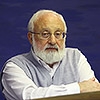 Question: Why is it that the more we disseminate to the world, the more we are rejected?
Question: Why is it that the more we disseminate to the world, the more we are rejected?



